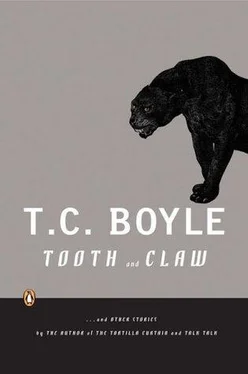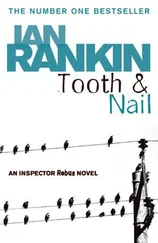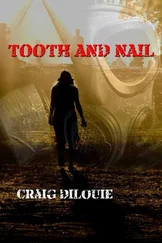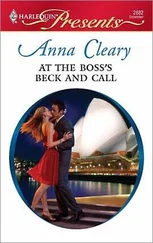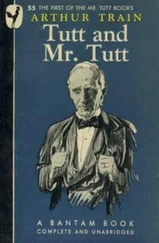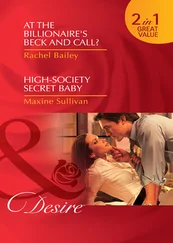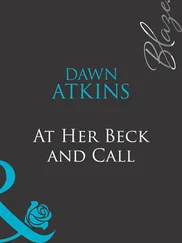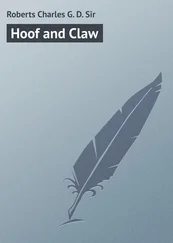The country they passed through rolled one way and the other, liberally partitioned by streams, creeks, freshets and swamps, the hooves of the horses eternally flinging up ovals of black muck that smelled of things dead and buried. There were birds in the trees still, though the summer flocks were gone, and every branch seemed to hold a squirrel or chipmunk. The leaves were in color, the dragon-flies glazed and hovering over the shadows in the road ahead, and in the clearings goldenrod nodding bright on a thousand stalks. For the first time she found herself relaxing, settling into the slow-haunching rhythm of the horse as she followed the Post’s back and the swishing tail of his mount through one glade after another. There were no houses, no people. She heard a gabbling in the forest and saw the dark-clothed shapes there — turkeys, in all their powers and dominions, turkeys enough to feed all of Boston — and she couldn’t help thinking of the basted bird in a pan over the fire.
At first she’d tried to make conversation with William (a man in his twenties, kempt, lean as a pole, taciturn) just to be civil, but talk seemed superfluous out here in the wild and she let her thoughts wander as if she were at prayer or drifting through the mutating moments before sleep comes. You should have gone by sea , Cousin Robert had said, and he was right of course, except that the rollicking of the waters devastated her — she’d been once with her father in a dingy to Nantucket when she was a girl, and once was enough. She could still remember the way her stomach heaved and the fear she’d felt of the implacable depths where unseen things — leviathan, the shark, the crab and suckerfish — rolled in darkness. She’d never learned to swim. Why would she, living in town, and when even the water of the lakes and the river was like the breath of mid-winter, and the sea worse, far worse, with men falling overboard from the fishing boats and drowning from the shock of it? No, she would keep the solid earth under her feet. Or her horse’s feet, at any rate.
Sure progress, the crown of the day: there was the sun, the solemn drapery of the forest, birdsong. She was lulled, half asleep, expecting nothing but more of the same, when suddenly a small thicket of trees detached itself from the wood and ambled out into the road so that her mount pulled up and flung its near eye back at her. It took two catapulting moments for the image to jell, and then she let out a scream that was the only human sound for twenty miles around.
The thing — the walking forest — was bearded and antlered and had eyes that shone like the Indian money they made of shells. It produced a sound of its own — a blunt bewildered bleat of alarm — and then it was gone and William, taciturn William, was there at her side. “It’s nothing to worry yourself over,” he said, and she saw that he was grinning as if he’d just heard a joke — or formulated one. He had a story to tell at the tavern that night, that’s what it was, and she was the brunt of it, the widow from Boston who wouldn’t recognize a — what was it, a moose? — if it came right up and grazed out of her hand.
AT FOXVALE
THE BOARD WAS primitive, to say the least, Sarah sitting at table with William while William discharged his letters to Nathan, the western Post, and the hostess bringing in a cheese that was like no cheese she’d ever seen. Eating was one of her small pleasures, and at home she always took care with the menu, serving up fish or viands in a savory sauce or peas boiled with a bit of salt meat, fresh roasted venison, Indian corn and squashes and pies — her speciality — made from the ripe fruit of the season, blueberry, raspberry, pumpkin, apple. But here the woods gathered close so that it was like night in the middle of a towering bright day, and there were none of the niceties of civilization, either in the serving or the quality. The cheese — harder than the bed she’d slept in the night before — barely took to the knife, and then it was a dish of pork and cabbage, which looked to be the remains of dinner. She found that she was hungry despite herself — ravenous, actually, with the exercise and air — and she took a larger portion than she would have liked.
“Tucking in there, Missus, eh?” William observed, giving her that same grin even as he nudged Nathan, and here was another story.
“We’ve been on the road since eight in the morning,” she said, wondering for the life of her what was so amusing about sheltering in a hovel in the woods fit only for a band of naked savages, “and it’s now past two in the afternoon. A woman has got to eat, if only to keep up her strength.” She was throwing it back at them, and why not — that was how she felt. And she was hungry, nothing to be ashamed of there. But the sauce was the strangest color — a purple so deep it was nearly black — and the thought came to her that the hostess had stewed the meal in her dye kettle.
William was watching her. As was Nathan. The hostess had vanished in the back room and the sound of the fowl scratching in the dirt of the yard came to her as if she were standing there amongst them. Very slowly a branch outside the sole window dipped in the breeze and parted the dense shadow on the wall. She hesitated, the spoon hovering over the dish — they were both of them grinning like fools — and then she plunged in.
FOXVALE TO PROVIDENCE
THIS WAS THE LEG of the journey that wore on her most. The new man — Nathan — rode hard and she had to struggle to keep up with him, or at least keep him in sight. Though he’d seen her discharge William handsomely enough and pay for his refreshment too, he didn’t seem in the least solicitous. He was a hat and a pair of shoulders and a back, receding, always receding. Her mount wasn’t much taller than a pony and tended to lag no matter how much encouragement she gave him, running to his own head and not a pace faster. The clouds closed in. A light rain began to awaken the dust. Nathan was gone.
She’d never been out alone in the wilderness in her life. When she was younger she’d gone berrying on the outskirts of town or spent a warm afternoon sitting by a cool brook, but the wild was nothing she wanted or recognized. It was a waste, all of it, and the sooner it was civilized and cultivated, the sooner people could live as they did in England, with security and dignity — and cleanliness — the better. To her mind, aside from the dangers that seemed to multiply with every step they took — a moose, indeed — it was the dirt that damned the wild more than anything. She hadn’t felt even remotely clean since she’d left town, though she’d done her best to beat the soil from her skirts, brush her shoes of mud and see to the demands of her hair. And now she was wet and the horse was wet and her baggage and the road before her, and every leaf on every tree shone and dripped.
She tried to concentrate her thoughts on easeful things, the tea set in her parlor and her daughter and Mrs. Trowbridge pouring out the tea and artfully arranging the pastries on the platter, because it was teatime now, and if it was raining there they’d have built up the fire to take the damp out of the air — but she couldn’t hold the picture long. Her thoughts kept coming back to the present and the dangers of the road. Every stump seen at a distance seemed to transform itself into a bear or wolf, every copse was the haunt of Indians mad with rum and lust, the birds fallen silent now and the rain awakening the mosquitoes that dove at her hands and face where they’d coarsened in the sun. She’d thought she was going on an adventure, a respite from town and gossip and all the constraints of widowhood, something she could look back on and tell over and over again to her daughter and the grandchildren she saw as clearly as if they’d already come into existence — but she wasn’t foolish, and she wasn’t blindered. She’d expected a degree of hardship, an untenanted road, insects and the like, wild animals, and yet in her mind the road always ran between inns with reasonable beds and service and a rough but hardy and well-tendered fare. But this was impossible. This rain, these bugs, this throbbing ache in her seat that was like a hot poker applied to her backside by one of Satan’s own fiends. She hated this. Hated it.
Читать дальше
